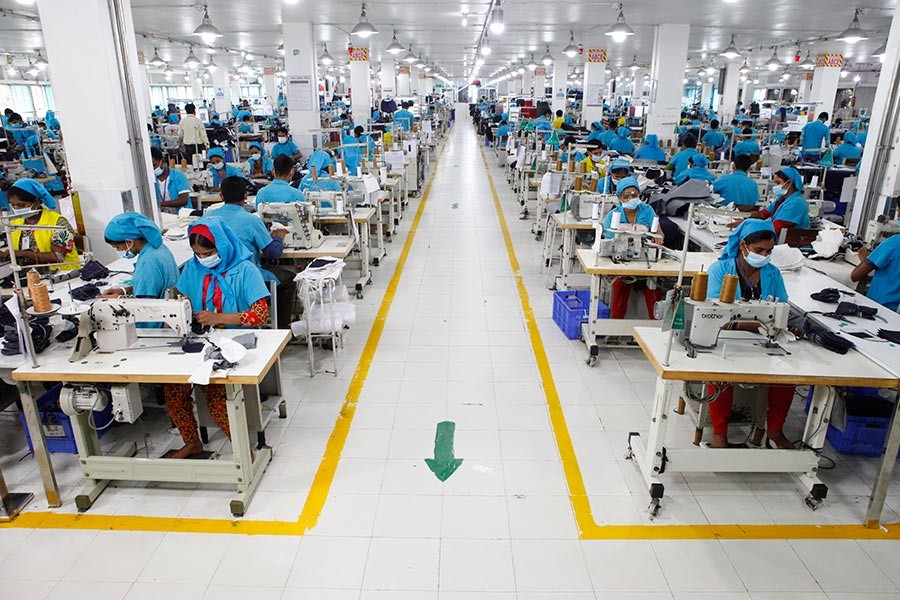Investing in water, sanitation and hygiene (WASH) for employees in companies can ensure further prosperity in business and increase productivity, said a new global study that includes Bangladesh.
The findings of the first-of-its-kind research, done by WaterAid and supported by HSBC for over a two-year period, were published on Tuesday.
When companies invest in WASH, the study shows, business thrives, employees' health, morale and loyalty improve, absenteeism reduces, punctuality enhances and staff turnover lowers, thus driving business profits.
For every $1 spent overall, apparel and leather sector projects combined delivered a $1.32 return on investment (ranging from $-5.40 to $9.04) during the project period.
The tea sector projects combined saw a $2.05 return (ranging from $-0.17 to $5.11).
This project focused on 10 different workplaces and their communities, from production lines in ready-made garment (RMG) factories and leather tanneries to vast tea estates and smallholder farms.
In Bangladesh, in employees' communities, almost a third of the households (31 per cent) have safely managed water and 26 per cent have decent toilets, compared with zero access for both before the project.
Absenteeism fell by 15 per cent, punctuality improved by 5.0 per cent and attrition decreased by 2.9 per cent, reads the report.
Productivity is the most influential and important indicator contributing to return on investment (ROI) across all workplaces.
In Bangladesh, productivity shows a great improvement in three factories, making the biggest business benefit-an estimated $7.8 million (Tk 738 million) over 10 years with continued investment in WASH.
Assuming a continued investment in WASH over a ten-year period, factories in Bangladesh show an overall ROI of $6.79 for every $1 invested (ranging from -$9 to $30), cites the report.
Ruth Loftus, project lead and WaterAid's senior private-sector adviser, said: "These investments increase health and productivity of employees, increase worker morale, reduce absenteeism and help prevent diseases-all of which mean lower operational costs, ultimately enhancing a company's bottom line and delivering on their ESG commitments."
Staff across all six workplaces was pleased with the impact of WASH investments, with 100 per cent of employees surveyed across the three RMG units. The facilities brought positive changes, and 83 per cent thought the project had significantly contributed to better health in their communities.


